Tools Required
| • | J 33782
Pinion Oil Seal Installer |
| • | J 38694
Extension Housing Oil Pump/Seal Installer |
Removal Procedure
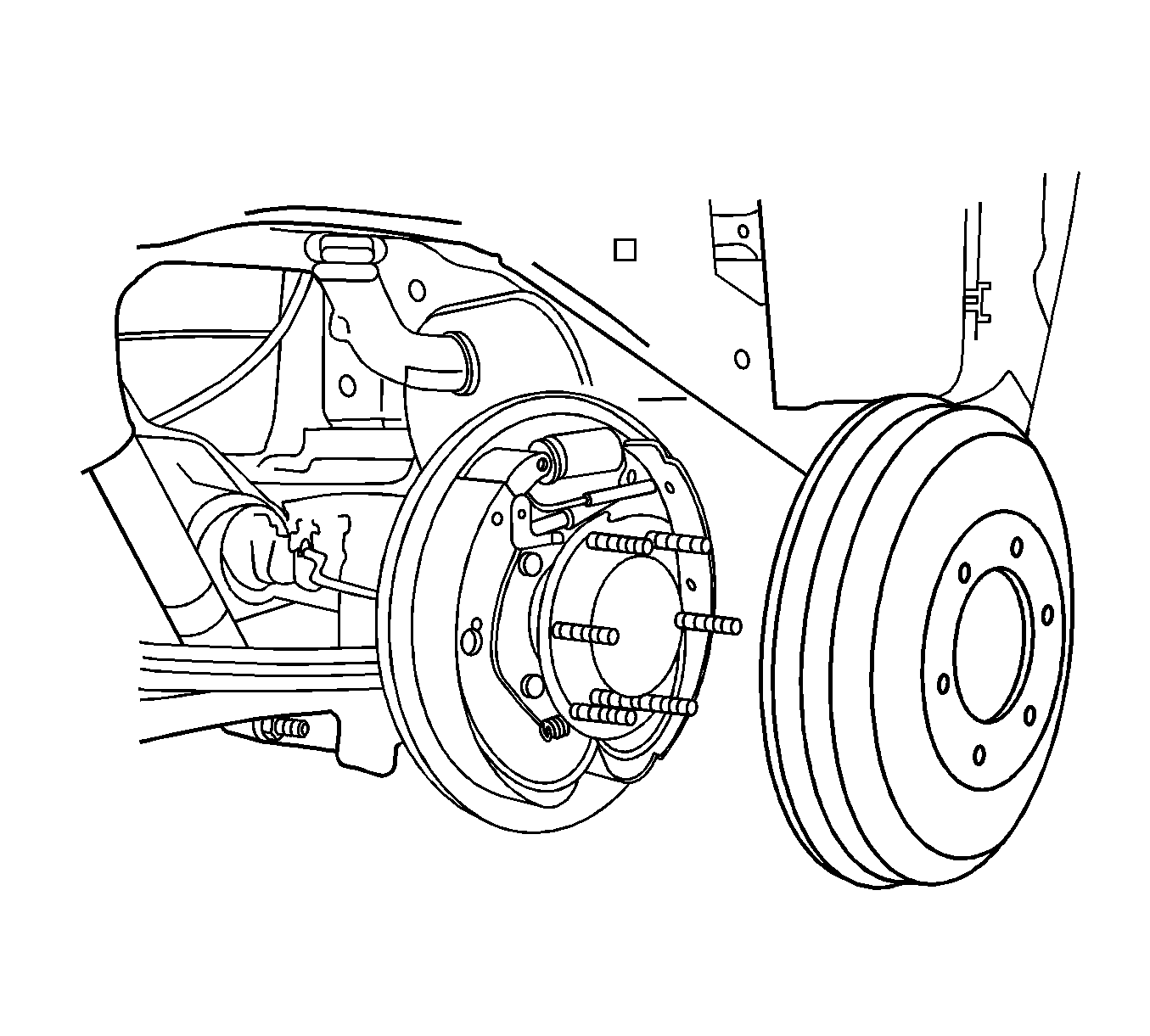
Important: Observe and mark the positions of all the driveline components, relative to the propeller shaft and the axles, prior to disassembly. These components include the propeller shafts, drive axles, pinion flanges, output shafts,
etc. Reassemble all the components in the exact places in which you removed the parts. Follow any specifications, torque values, and any measurements made prior to disassembly.
- Raise the vehicle. Refer to
Lifting and Jacking the Vehicle
.
- Remove the rear brake drums. Refer to
Brake Drum Replacement
.
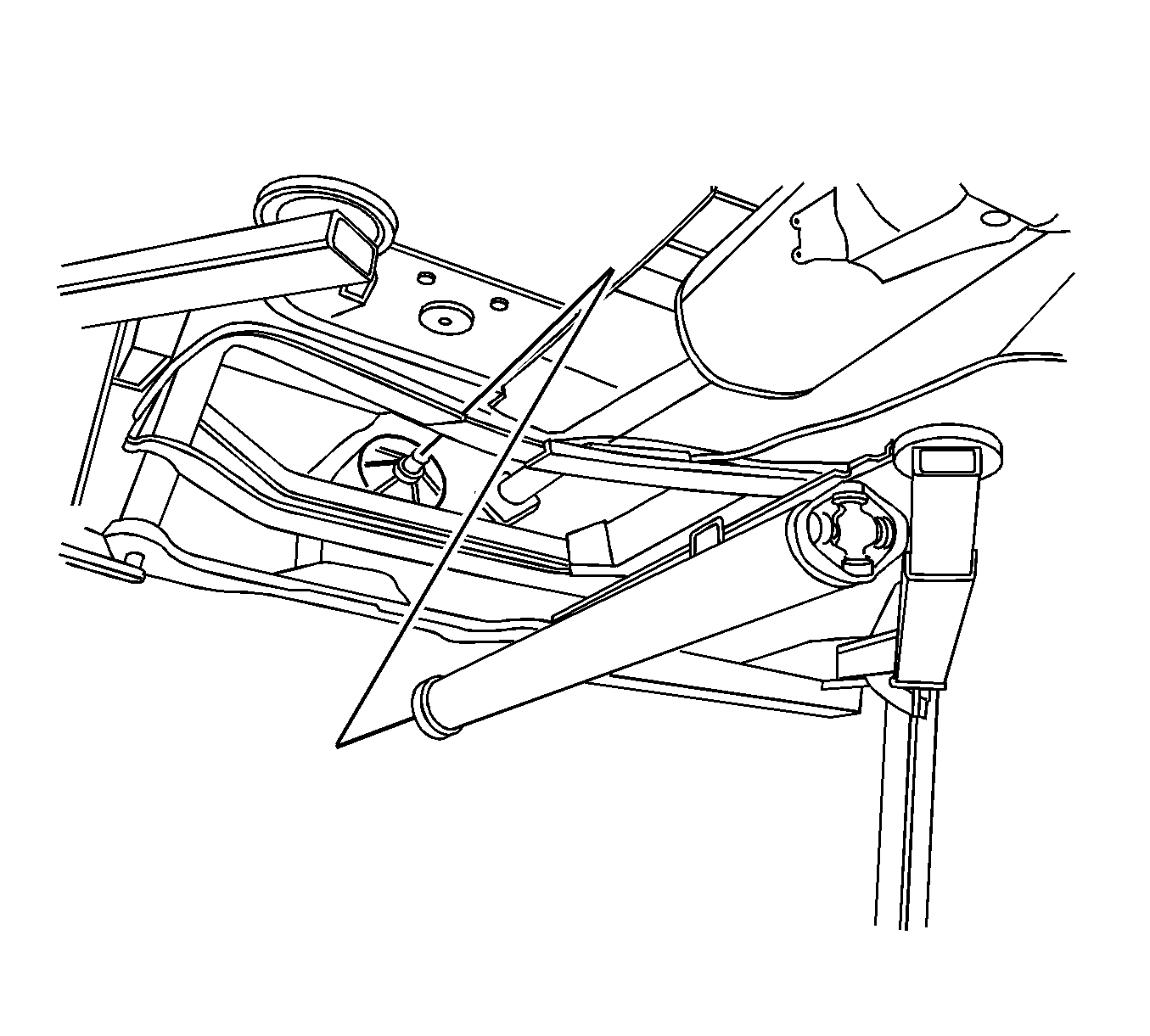
- Remove the propeller shaft.
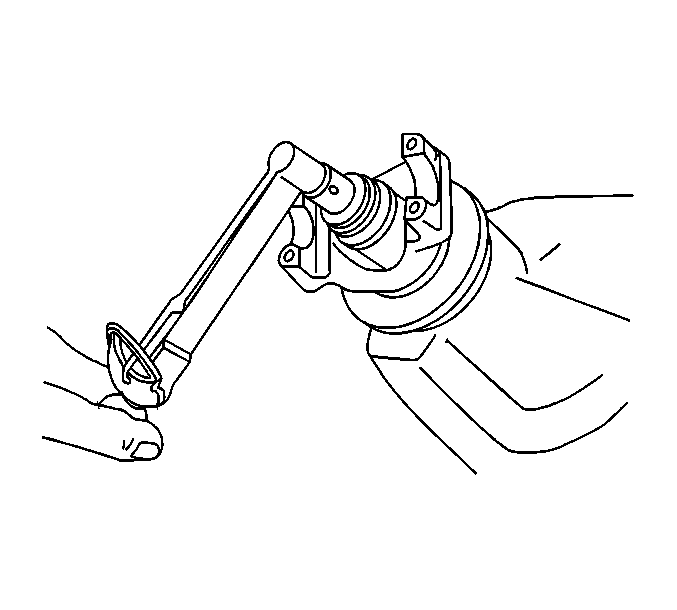
- Measure the amount of torque required to rotate the pinion. Use an inch-pound torque wrench. Record this measurement
for reassembly. This will give the combined preload for the following components:
| • | The differential case bearings |
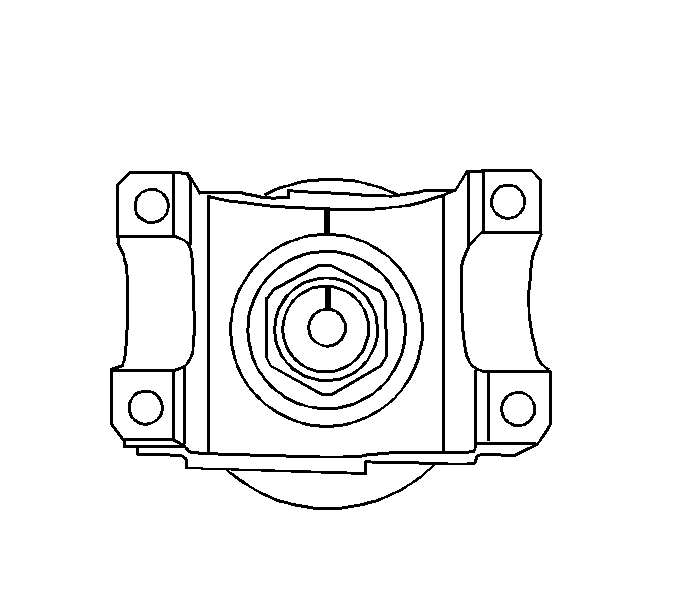
- Place an alignment mark between the pinion and the pinion yoke.
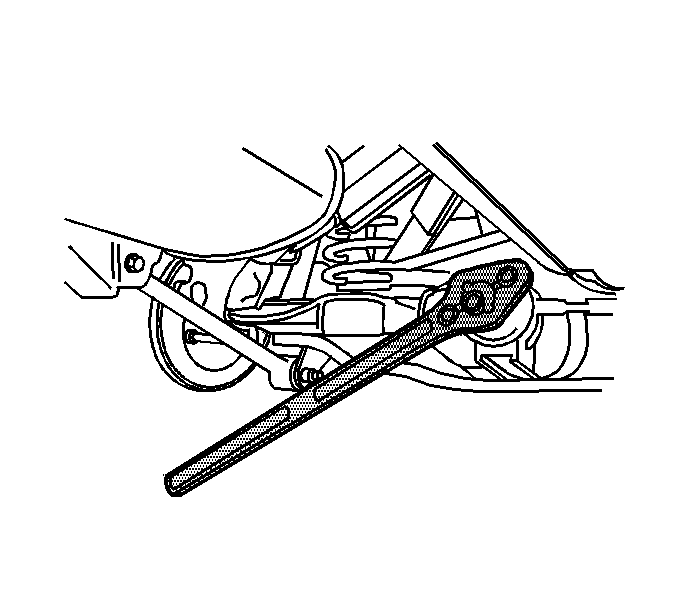
- Install the
J 8614-01
as shown.
- Remove the pinion nut while holding the
J 8614-01
.
- Remove the washer.
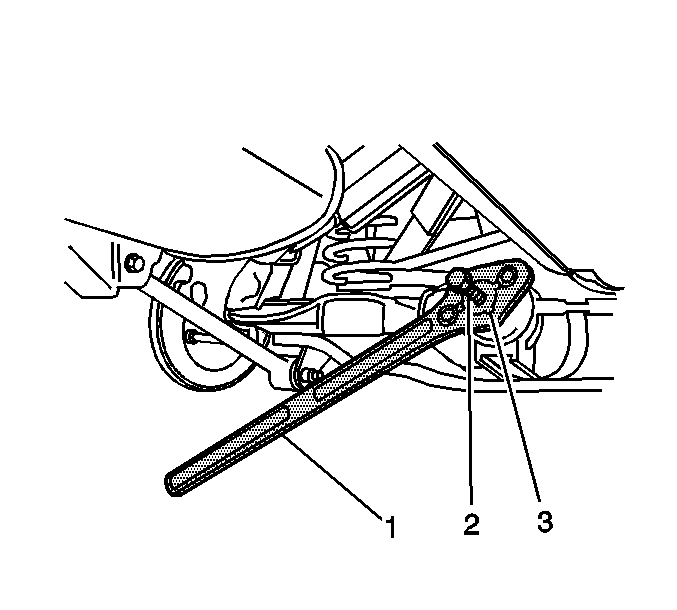
- Install the J 8614-3 (2) and the J 8614-2 (3) into the
J 8614-01
(1) as shown.
- Remove the pinion yoke by turning the J 8614-3 (3) clockwise while holding the
J 8614-01
(1).
Use a container in order to retrieve the lubricant.
- Remove the pinion oil seal. Use a suitable seal removal tool. Do not damage the housing.
Installation Procedure
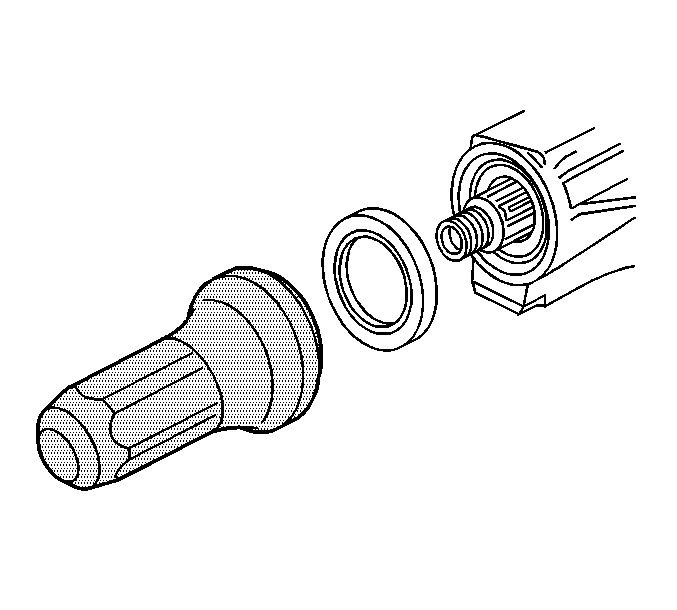
- Using the
J 33782
, install the pinion seal.
- Apply sealant GM P/N 12346004 (Canadian P/N 10953480) or equivalent to the splines of the pinion yoke.

- Align the reference marks.
- Install the pinion yoke.
Notice: Do not hammer the pinion flange/yoke onto the pinion shaft. Pinion components
may be damaged if the pinion flange/yoke is hammered onto the pinion shaft.
- Using a soft-faced hammer, tap the pinion yoke until the threads on the pinion shaft can be seen.
- Install the washer and a new pinion nut.

- Install the
J 8614-01
onto the pinion yoke as shown.
Notice: Use the correct fastener in the correct location. Replacement fasteners
must be the correct part number for that application. Fasteners requiring
replacement or fasteners requiring the use of thread locking compound or sealant
are identified in the service procedure. Do not use paints, lubricants, or
corrosion inhibitors on fasteners or fastener joint surfaces unless specified.
These coatings affect fastener torque and joint clamping force and may damage
the fastener. Use the correct tightening sequence and specifications when
installing fasteners in order to avoid damage to parts and systems.
Important: If the rotating torque is exceeded, the pinion will have to be removed and a new collapsible spacer installed.
- Tighten the pinion nut while holding the
J 8614-01
.
Tighten
Tighten the nut until the pinion end play is just taken up. Rotate the pinion while tightening the nut to seat the bearings.

- Measure the rotating torque of the pinion. Compare this measurement with the rotating torque recorded during
removal.
Tighten
Tighten the nut in small increments, as needed, until the rotating torque is 0.40-0.57 N·m (3-5 lb in) greater than the rotating torque recorded during removal.
- Once the specified torque is obtained, rotate the pinion several times to ensure the bearings have seated. Recheck the rotating torque and adjust if necessary.

- Install the propeller shaft.

- Install the brake drums. Refer to
Brake Drum Replacement
.
- Inspect and add axle lubricant to the axle housing, if necessary. Refer to
Rear Axle Lubricant Replacement
.
- Lower the vehicle.












